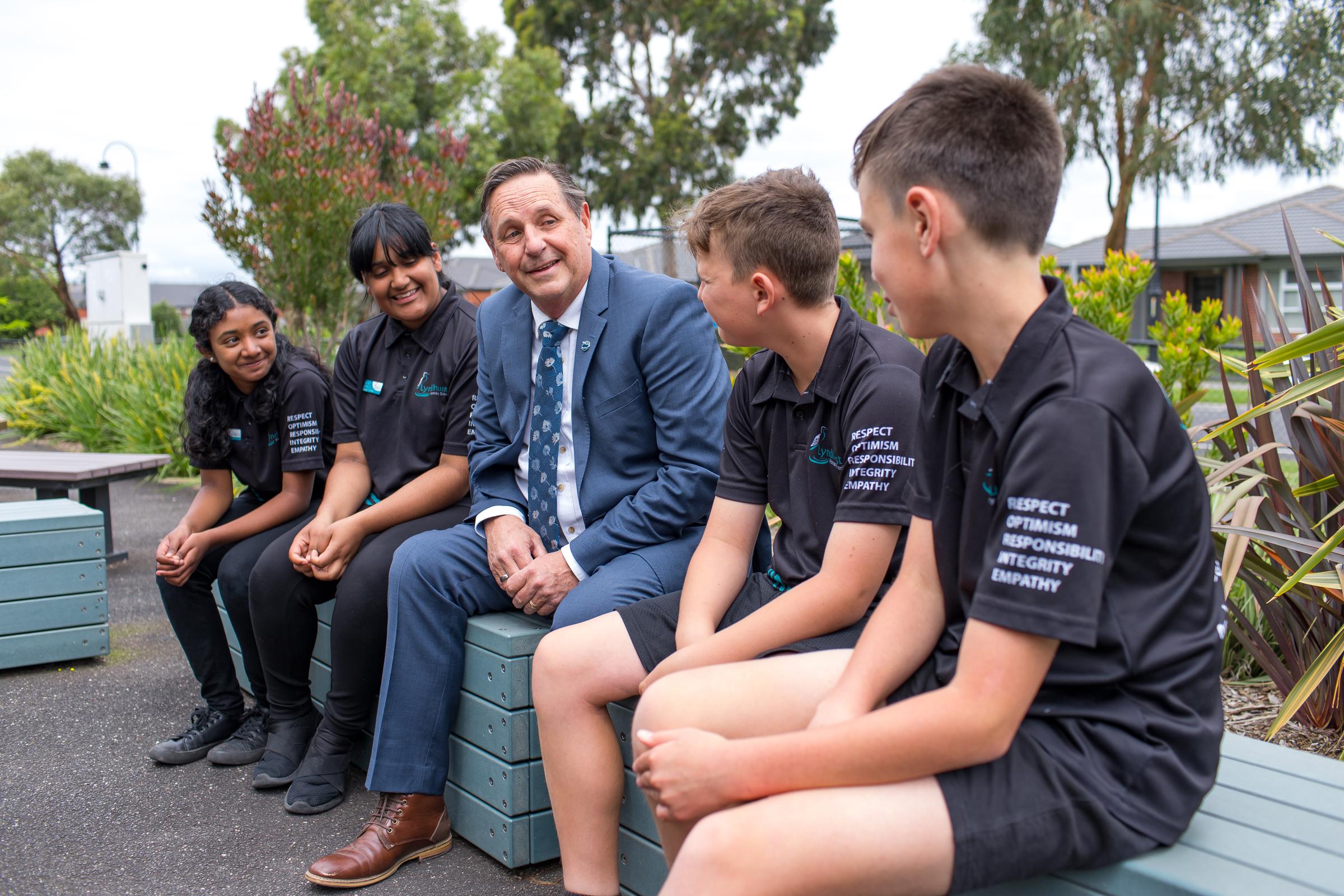Principal's Report

Principal’s Report 26th April
ANZAC Day 2024
Thank you to the many families who came along to the ANZAC Day ceremony in Cranbourne yesterday morning. A special thanks to the many student leaders who attended and presented a wreath at the cenotaph on behalf of the Lyndhurst community. Leadership is setting the right example and all of the student leaders who attended, showed that example. I was very proud of everyone who came along to support such a significant commemoration.
The bigger dangers of Social Media for our children
David Crowe: The Age – Chief Political Correspondent
I recently read an article in the Age newspaper. The article references a new book, The Anxious Generation by social psychologist Jonathan Haidt, a professor at New York University’s Stern School of Business.
In the book, Haidt presents compelling evidence of the significant damage that social media is inflicting upon our young people. The article is prompted by the refusal of Elon Musk to remove violent content from his X (formerly Twitter) platform following the distressing incidents in Sydney recently.
In the article, he states:
“The argument about the violent video is urgent and important. But what if the greater danger is slow and insidious? What if social media apps, running on smartphones, are inflicting lasting damage on young children?
That is the warning in a new book about a disturbing increase in depression and anxiety after the arrival of the iPhone in 2007 and the explosion in social media apps soon afterwards.”
In Victorian schools, we have a Ministerial ban on smartphones at school, but we know that many of our children spend many hours on these insidious social media platforms, often without close adult supervision or knowledge and, certainly in primary schools, in breach of the “13 and over” age rule for joining these platforms. Many do this with the permission of their parents but many do it behind their parents’ backs, either deliberately secretively or simply because parents don’t supervise.
The article continues:
“In the book, Haidt has four solutions. First, no smartphones before high school. Second, no social media before the age of 16. Third, a ban on smartphones at school. Finally, more time for children to play in the real world without being smothered by adult supervision.
In today’s world, those four steps look incredibly challenging, but not extreme. Many parents agonise about when to give their children smartphones, so they might welcome his advice. It would be a huge task to ban phones in schools, but Federal Education Minister Jason Clare already says this should happen. And who doesn’t want kids to have more time for independent play?”
You will note the point about “play in the real world” and, you will know that this has been a mainstay of our approach to teaching and learning at this school since the school opened. The research evidence is overwhelming for a play-based learning approach for children from 0-8 years of age, and for unstructured play to be a significant part of a child’s life right through the primary school years. You will also note that the call for a ban on smartphones at school has already been implemented in Victoria. Despite some challenges by a small number of parents, this ban has been roundly accepted as a positive move for the learning and well-being of our young people.
The “no social media before the age of 16” is down to parents. We can wait for authorities and governments to bring in such a ban, or we can act as courageous and responsible parents and institute this rule right now. The risk if we’re wrong on this but we go ahead anyway, is minimal. The risk if we are right and we don’t go ahead with it, is high.
It's a really significant issue and I don’t underestimate the challenge for parents. I was fortunate to bring up my children at a time when social media was around but nowhere near as pervasive as it is now. However, the evidence of the damage social media is causing to our children is becoming more and more clear.
For example:
“Haidt argues the causal connection is being proven as more research is done. One example: girls aged 14 who spend five hours or more on social media each day are three times more likely to be depressed than girls who use social media only a little or not at all. Another: the risk of depression increases by 13 per cent for each hour an adolescent spends on social media.”
This is certainly a topic of discussion for families and conversation that should include your children, especially as they come to the later years of primary school and the pressure to get a smartphone escalates. It’s important that they are included so that they understand the reason for your decision as a parent rather than a rule without any context. Education about the dangers of social media will be a key to managing this with our children, so that they can be part of a responsible decision based on the evidence and reason.
School Culture and the New Logo
The next document for parents, giving you a better understanding of the “why and how” of our school, is a piece describing important understandings of our school culture, through our new school logo.



